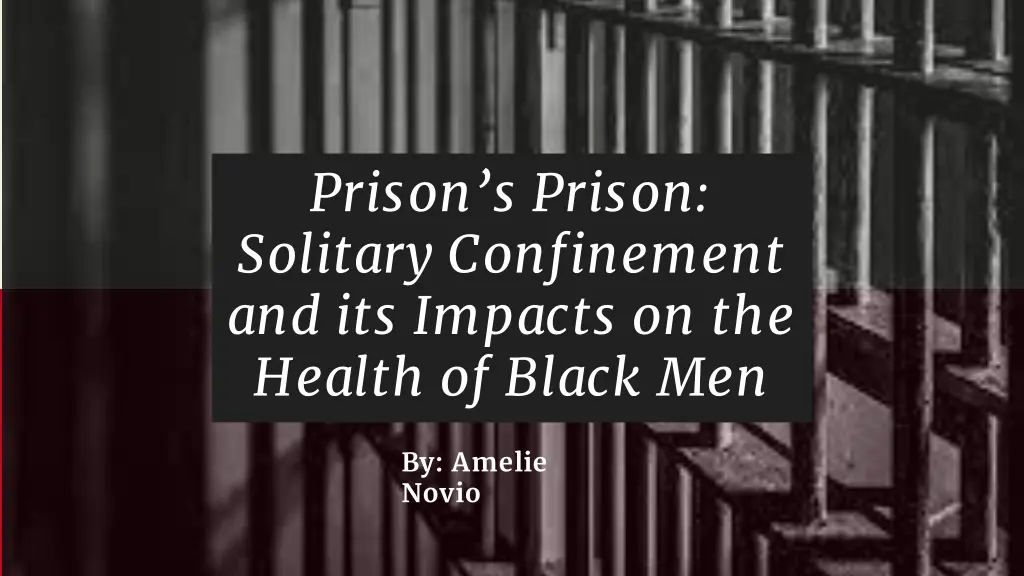
Impact of Solitary Confinement on Black Men's Health in Prisons
Explore the detrimental effects of solitary confinement on the mental and physical health of Black men in prison. Uncover the racial biases and severe conditions faced by inmates in isolation, shedding light on critical disparities in the criminal justice system.
Download Presentation

Please find below an Image/Link to download the presentation.
The content on the website is provided AS IS for your information and personal use only. It may not be sold, licensed, or shared on other websites without obtaining consent from the author. If you encounter any issues during the download, it is possible that the publisher has removed the file from their server.
You are allowed to download the files provided on this website for personal or commercial use, subject to the condition that they are used lawfully. All files are the property of their respective owners.
The content on the website is provided AS IS for your information and personal use only. It may not be sold, licensed, or shared on other websites without obtaining consent from the author.
E N D
Presentation Transcript
Prisons Prison: Solitary Confinement and its Impacts on the Health of Black Men By: Amelie Novio
Research Question How does treatment in solitary confinement impact Black men in prison? 2
Thesis Statement Black men are overrepresented in the prison population and are disproportionately given solitary confinement as punishment. This means that Black men are subjected to the most severe mental and physical health issues in prison. 3
Introduction Many people are unaware of what exactly happens in solitary confinement and how vulnerable inmates are. Black men are overrepresented in the prison population and disproportionately given solitary confinement as punishment. They are subjected to conditions that cause mental and physical health issues. 4
Key Findings Environment in Isolation Racial Bias Mental Health Consequences Physical Health Consequences 5
Environment in Isolation Inmates in isolation spend about 22-23 hours in their cell daily They are almost completely devoid of human contact. They are given very few hours of time outside of their cell for exercise and recreation. 6
Racial Bias There have been limitations in data about violations and punishment types in prison. There is evidence of racial bias in the criminal justice system. Implicit biases in court can influence sanctioning decisions. 7
Mental Health Consequences One of the main arguments against solitary confinement is the damage it does to mental health. Mental illness can last beyond time in prison. Black inmates are more vulnerable to mental illnesses in prison. 9
Physical Health Consequences It is difficult for inmates to get access to medical treatment Suicide and and self-harm are very common among prisoners in isolation. The hypertension rate in solitary confinement is higher than the general prison population. Black inmates have higher risks of contracting diseases and illnesses found in prison. 11
Conclusion The environment in solitary confinement has negatively and disproportionately impacted the physical and mental well-being of black male inmates. Many organizations have pushed for the prevention and banning of solitary confinement. 12
Solutions Send mentally ill inmates to treatment rather than confinement Training of staff More time out of cells Incentive programs rather than punishment Step-down programs that integrate segregated inmates to the general prison population 13
Thank You 14






















